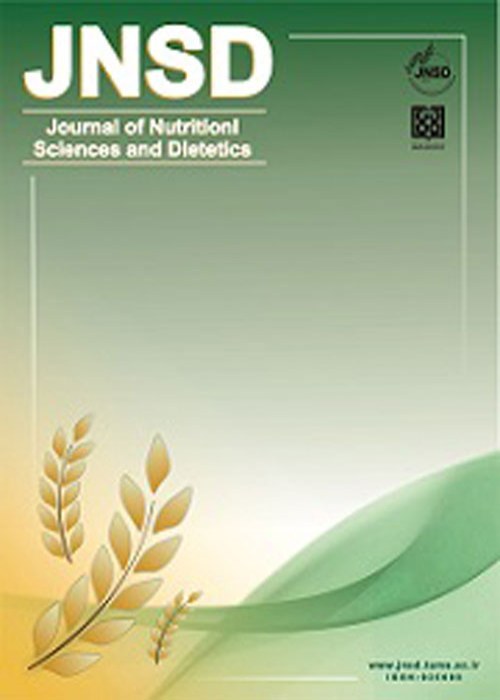Breakfast intake is associated with higher dietary diversity score, weight satisfaction and lower body mass index in girl adolescents
Author(s):
Abstract:
Objective
To evaluate the association of breakfast intake with micro and macro nutrients intake, dietary diversity score (DDS), food group consumption and body mass index (BMI) in girl students.Research Methods & Procedures: A total of 384 female students (aged 15 to 19 years) were recruited from high-schools of Tehran using stratified sampling. Information regarding frequency of breakfast consumption was collected by asking questions on a three-point scale of always, sometimes and never. Physical activity and DDS were measured by International Physical Activity Questionnaire (IPAQ), Dietary Diversity Questionnaire (FAO-2013), respectively. In addition, weight, height and waist circumference (WC) were measured and body mass index (BMI) was calculated as weight (kg) per height squared (m2).
Results
In the present study, 49.5% of girls always consumed breakfast; 34.4% sometimes and 16.1% never consumed breakfast. Skipping breakfast was significantly associated with higher BMI and weight dissatisfaction (p≤0.05). Adolescents who were daily consumers of breakfast had higher intake of energy and carbohydrate (p˂0.05). They had also higher intake of saturated fatty acids, cholesterol, linoleic acid, folate, manganese and fluoride after adjustment for energy intake (p˂0.05). After adjustment for energy and BMI, DDS was significantly higher for adolescents with daily breakfast consumption compared to other groups(p=0.03). Further, percentage of participants consuming egg, milk and dairy, fruits and vegetables rich in vitamin A was higher in daily breakfast eaters compared to other groups (p˂0.05).
Conclusion
Eating breakfast may associate with higher diet quality as well as weight control in female adolescents.Keywords:
Language:
English
Published:
Journal of Nutritional Sciences and Dietetics, Volume:2 Issue: 3, Summer 2016
Pages:
12 to 20
https://magiran.com/p1718910


